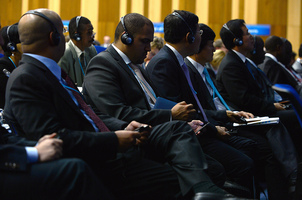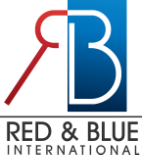 Sometimes RABI clients wonder why we recommend that translations be proofread before submitting them to our clients. After all, the client wrote the original content, and all we need to do is transfer it to a different language. So why the review? You have put hours of hard work into getting every word right, creating just the right tone and choosing the most accurate words possible to relay your thoughts to the reader, and now you want it translated into a different language. Here’s what happens. Our translator reads your text and then thinks about how to best convey the meaning of your text in the new language. He does not translate it word for word, but translates it as a whole so that the readers of the destination language receive the same complete information as the readers of the original language, and he also pays attention to the nuances of words. Think about all the words in the English language that mean more or less the same thing as the word ‘nice.’ Perhaps: good, pleasant, okay, kind, fair, or gentle. Each of these words has a slightly different meaning, depending on context. A good translator will take care to choose the word in the destination language that most accurately corresponds to the one used in the original language and likewise, choose whole phrases based on meaning. Because this process is somewhat subjective, it is imperative that the draft then be read by another translator who double checks that the true meaning of the original document comes through in the translation. Additionally, our team makes sure we've carefully dotted our i’s and crossed our t’s, that the grammar is correct, and that there are no typo’s. So the next time you have a document translated, rather than hesitating at a round of proofreading, you should insist that it be proofread by a native speaker in the destination language to ensure that the high quality document that you produced is just as effective in the translated language.
0 Comments
 We've written before about how critical it is to hire professional interpreters for your events, but we haven't talked much about conferences from the perspective of the attendees. Imagine that you've come all the way from Madrid to Las Vegas to attend an important industry conference, but, in order to save money, the organizer convinced a couple of Spanish speaking employees to be the interpreters. They have no experience with interpretation: they're nervous, they speak in a monotone, they neglect hand gestures, they forget to breathe, etc. How much are you, the attendee going to get out of the conference? You'll probably give up and try out your English skills instead, and you're not going to recommend the conference to your colleagues at home. When you put together your event, you devote time and energy to picking just the right venue, the right menu, and the best speakers you can find. Don't leave hiring a language services agency off of your to-do list. Agencies vet interpreters for you so that you get the best and most qualified for your event. They provide equipment that they set-up and test to ensure a good audio experience for your attendees. And agencies like RABI excel in project management, ensuring that the right interpreters are prepared, and in the right place at the right time, so that you can focus on finding the keynote speaker.  At some medical conferences, the international audience can comprise as much as 70% of the total audience. What does this mean for you? You probably need to hire qualified interpreters who specialize in your industry. While many of your audience members may say that they speak English, they are likely to get a lot more out of your event if you provide interpreters for their language. Below are three tips to get you started. 1. Don’t skimp on interpreter services. International audience attendance is growing, but sometimes event hosts are tempted to cut costs by tapping a co-worker who speaks the language, or they hope that their attendees know enough English to “get-by.” Do everything you can to guarantee that your audience fully participates and comes away from your event with new expertise and a willingness to recommend future such events to their colleagues. This includes hiring qualified interpreters. 2. Begin the hiring process as soon as possible. If you’re planning on hosting a conference and know you’re going to need an interpreter, don’t hesitate to contact an agency as soon as possible, especially if your conference covers a technical subject. The more lead-time an agency has, the more it can find just the right interpreter(s) for your language and subject matter. 3. Provide materials ahead of time. Usually speakers are asked to submit a copy of their presentation to conference presenters at least a week before the conference. Pass these materials along to your interpreters so that they can familiarize themselves with the content before the big day. Statistics from: http://www.hcea.org/?page=news_info_2012_07  We're excited to kick-off the new year with some great simultaneous interpretation projects, which reminds us that now is a good time for everyone to take a look at their calendars for 2015 and start planning. If you have conferences or seminars on your books for later this year, it's not too early to think about securing interpretation services. Also, consider whether you need materials translated for your attendees. This can include signage, presentations, hand-outs, brochures, advertisements, or even subtitles for videos you plan to share at your event. Get a head start on 2015 by thinking about your speaker and attendee needs now. Happy New Year! |
Author
Archives
March 2024
Categories
All
|
Photos from : : Ys [waiz] : :, bjahind, fabola, MattysFlicks, @sage_solar, LoS, Traducción e Interpretación, Kyle Taylor, Dream It. Do It., _gee_, keepitsurreal, One Way Stock, Airviewsphotos, GotCredit, efile989, Benoit cars, ** RCB **, stephiesal853, Francisco Anzola, Highways England, ITU Pictures, VIPevent, leoplus, Karsten Bitter, Jolante, jobstop11, Nguyen Vu Hung (vuhung), jurvetson, mikefats, YooSan, sandrafdzh, roland, mikecogh, y entonces, Donald Lee Pardue, Gatorgoon, daniel0685, BÜNDNIS 90/DIE GRÜNEN, rick, {Guerrilla Futures | Jason Tester}, mikecogh, markyharky, amslerPIX, jo.sau, IAEA Imagebank, lisa-skorpion, Toronto Public Library Special Collections, Wootang01

 RSS Feed
RSS Feed
